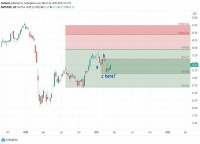|
Private equity can no longer afford to stay on the sidelines according to some experts. Bailey McCann, Opalesque New York: 
In this most recent election cycle, the US saw its first ever private equity presidential candidate and immediately created a reality distortion field around the industry and what it does. Partly, this was the result of standard electoral framing by the opposition, but it was also the result of some misreporting in the press about the actual function of private equity within the US economy. Private Equity accounts for a significant portion of US economic activity. According to the data from the National Venture Capital Association, Venture Capital alone accounts for some 21% of US GDP. More broadly, private equity financing of all stripes touches virtually every part of the US economy in some way. However, few people in the public conversation have a firm grasp of what all that entails, and until recently, general partners were more than happy to keep to themselves. Now, all of that is starting to change, in a sense Mitt Romney's candidacy accelerated public awareness of the industry, but that snowball was already teetering on the mountains edge. The question is whether the industry itself makes an effort to correct the record. There is some movement on this front, general partners have made some efforts to highlight the success stories, but more is needed, according to some insiders - "An industry effort is needed to correct the record and provide examples of the positive things that private equity does in the United States and worldwide. Some of that is already underway, but needs to be an ongoing process," explains Russ Steenberg, Global Head of BlackRock Private Equity Partners (PEP) in an interview with Opalesque. "I think the awareness of private equity in the public consciousness is here to stay. It is a mistake for private equity to put its head in the sand and think that we can go back to obscurity." He notes that much of the conversation around private equity now centers on job creation, which misunderstands the core goal of private equity - creating shareholder value. Business schools, and academics are currently working to make these nuances clearer, but that too is somewhat outside of public view. Even though the US didn't end up with a private equity president, the election results may keep that conversation going as lawmakers, and industry participants turn their eye toward the fiscal cliff, and the likely tax code changes that will come from that. A variety of revenue measures are being considered on the Hill, some which will directly impact private equity and the alternatives industry overall such as carried interest. The industry has long been an opponent of counting carried interest the same as income tax, with many noting that making that change won't bring the country any closer to closing the revenue gap. "We'll get a short term deal, but we need to spend time on this over the long term," says Jeffrey Rosenthal, Financial Services Practice Leader, Anchin, Block & Anchin. "We have to raise a fair amount of money here. Dealing with long-term capital gains isn't going to solve the revenue picture in total." Steenberg echoes this point - "What's overlooked in this discussion is that private equity isn't the only industry affected by carried interest; real estate is in there, hedge funds are in there. People don't understand the scope, or the limited revenue that will be derived from taxing carried interest." The knock-on effects of a change in structure are also likely to result in lower returns for investors. More broadly, as the economy continues to move through its recovery and places like the Eurozone work to restructure their debt, the overall landscape of opportunities for private equity is expected to shift. According to Steenberg, in a sense this has always been the case, "the current economic cycle and the pressures of that cycle is what changes the face of private equity." He offers the recent consolidation in venture capital as one example, noting that through that process, firms that lacked the skills and the track record to keep attracting assets during the contraction simply failed, resulting in a leaner, higher quality group of funds and firms. "We think going forward there are going to be some interesting opportunities in venture capital for those with the skills and ability to manage this market." Moving into next year, Steenberg is optimistic overall, about the future of the industry and the variety of opportunities available. His group sees significant potential in the energy sector, (discussed in greater detail in our sector focus) as well as in opportunistic infrastructure investments. "The biggest risk in 2013 in assets in the ground is in GDP growth. GDP growth has to be there. If we move into a recession, that is going to impact cash flow and that is a risk to the industry that could be painful," he says. | |
|
This article was published in Opalesque's Private Equity Strategies our monthly research update on the global private equity landscape including all sectors and market caps.
|
Private Equity Strategies
Private Equity Searches for its Public Identity After the US Election. |
|





 RSS
RSS









